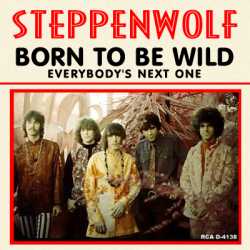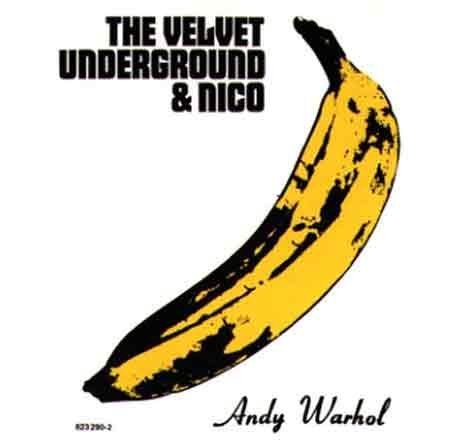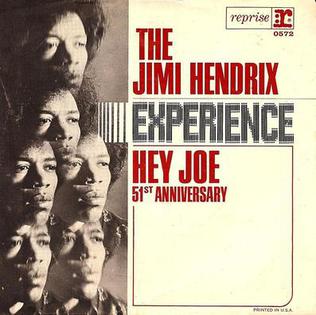Hello everyone,
Well, Summer Psychosis 2 (a.k.a. Summer Psychosis of Love) is almost in full swing. I hope all of you are as excited as I am. But before we get going with the first preview on Monday, I'd like to take a step back and reiterate that this 60's song bracket is extremely competitive by nature. Knowing how much popular music evolved (mostly for the better) from 1965 to 1969, there's a staggering amount of classic music involved. That's why I feel the need to applaud five songs that just missed in no particular order, if only to show that the number of worthwhile 60's songs is way, way past 64. Before you ask, here is the bracket of songs that DID make it and are ready to compete next week (just click on Championship Bracket).

Written by Mars Bonfire, Performed by Steppenwolf from the album "Steppenwolf".
Released as a single in June 1968, reached No. 2 on the Billboard Hot 100
Original Key: E major
It has been called the first heavy metal song. It even predicted the term with its "heavy metal thunder" lyric. But "Born to be Wild" is only describing the feeling of riding a motorcycle, perfect as the soundtrack for 1969's "Easy Rider", a classic biker road movie. Quite a ways away from its origins as a slow ballad being offered to bands by Dennis Edmonton (a.k.a. Mars Bonfire). Thankfully, Steppenwolf (whose drummer was Bonfire's brother) turned "Wild" into a torrid, full-speed-ahead classic rock gem. The jagged power chords, churning organ and charismatic vocals grab you by the throat and never let go.

Written by Lou Reed, Performed by The Velvet Underground from the album "The Velvet Underground & Nico"
Released through the album in March 1967, did not chart
Original Key: D flat major
Your average 60's Velvet Underground song is arty, weird and not exactly a chart-topper. It is also boldly experimental and can cut to your core. Yet in the same year where "Lucy in the Sky with Diamonds" was edgy, "Heroin" goes far beyond average as an unflinching take on its namesake. "Thank God that I'm good as dead," Lou Reed sings as he's shooting up and sees the dead bodies multiplying. Reed seemingly accepts his fate, but Maureen Tucker's bass drum and John Cale's droning viola create a dangerous environment filled with sickening crescendos and drones that turn into awful shrieks. "Heroin" didn't make the bracket, but there may not be a 60's song that is as daring or gut-wrenching.

Written by Billy Roberts, Performed by The Jimi Hendrix Experience from the 7" single
Released in December 1966 (UK) and May 1967 (US), reached No. 6 on the U.K. chart but did not chart in the U.S.
Original Key: E major
This folk tune by Billy Roberts borrowed musically and thematically from a few songs, then spread like wildfire in the mid-60's West Coast music scene. It soon became a garage rock staple; even The Byrds and Love recorded versions. So why is Jimi Hendrix's version definitive? He sat back and slowed the tempo, giving "Hey Joe" much needed room to build, unlike breathless earlier versions. The deep rhythm section of The Experience and ghostly background vocals gives Hendrix an air of grim determination as he goes to shoot his lady for messing around for another man. But most importantly, "Hey Joe" introduced Hendrix's guitar heroics to the world, blowing everyone out of the water in an instant.

Written by Mick Jagger and Keith Richards, Performed by The Rolling Stones from the album "Aftermath" (U.S. version)
Released in May 1966, reached No. 1 on the Billboard Hot 100 (and the U.K. singles chart)
Original Key: F minor
50 years of The Rolling Stones has brought forth many great songs to the world, and a lot of them were commercially successful. A storied career with five songs already in the bracket predictably leaves some of those songs under the radar. "Paint It, Black" should not be overlooked, as it is arguably the most distinctive song of their entire catalog. No matter how many times Mick Jagger tries to break out of the blackness during the more conventional refrain, he always finds himself wallowing in the lively yet brooding rhythm section with Brian Jones's sitar line repeating eerily. It's the sound of a band realizing its full potential, and only getting better.

Written by Robbie Robertson, Performed by The Band from the album "Music from Big Pink"
Released in July 1968, reached No. 63 on the Billboard Hot 100 and No. 21 on the U.K. singles chart
Original Key: A major
There aren't many songs that are best when they stripped down nearly to bare bones. "The Weight" is one of them. The Band is sadly not represented in the bracket, but that should take nothing away from this bluesy folk classic. Levon Helm takes charge here, with his endearing country drawl and expansive drums setting the tone. Helm and the backup vocalists mull on how a load was put on them while "feeling half past dead", and they display that world-weariness perfectly while never overdoing the sly Biblical references. Pianist Garth Hudson fills in the gaps with equal aplomb, then resorts to low descending octaves after the chorus that are downright majestic in context. If you're looking for a song with emotional weight, come to Nazareth.
But wait, there's more! I couldn't stand to give a shout out to just five songs who didn't make it, so here's another five:
Sly and the Family Stone - Dance to the Music (Written by Sly Stone, released January 1968, U.S. #8, G major)
Spencer Davis Group - Gimme Some Lovin' (Written by Spencer Davis, Stevie Winwood and Muff Winwood, released October 1966, U.S. #7, U.K. #2, G major)
Aretha Franklin - I Say a Little Prayer (Written by Burt Bacharach and Hal David, released June 1968, U.S. #10, U.K. #4, A major)
The Beatles - Penny Lane (Written by John Lennon and Paul McCartney, released February 1967, U.S. #1, U.K. #2, B major)
The Troggs - Wild Thing (Written by Chip Taylor, released July 1966, U.S. #1, U.K. #2, A major)
Thanks,
John
No comments:
Post a Comment